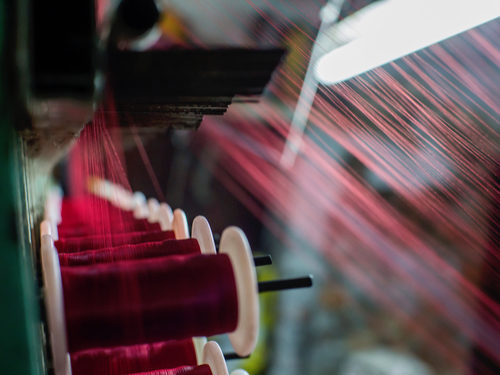
Visit Our Sponsors |
|
|
|
|
|
|
|
|
|
|
|
|
|
|
|
|
|
|
|
|
|
|
|
|
|
|
|
|
|
|
|
|
|
|
|
|
|
|

The apparel industry has a water problem, and Gap Inc. wants to fix it.
As water scarcity spreads and consumer awareness of the problem rises, the San Francisco-based retailer is helping to open a facility in Ahmedabad, India, next year that will study ways to reduce water waste. Gap will team with textile manufacturer Arvind Ltd. to open the 18,000-square-foot plant, which it’s calling an “innovation center.”
Gap will also invest in a new treatment facility about 15 miles away from the site that will reuse water from the plant, instead of drawing it from from the nearby community’s supply.
Arvind’s denim mill, which was the first in India to manufacture the material, consumes 8 million liters of fresh water per day, according to the company. That’s more than three times the content of an Olympic-sized swimming pool. Once the facility is built, it will tap into wastewater from the municipal line and clean it. Gap and Arvind estimate this will save 3 billion liters of fresh water by the end of 2020.
The global garment industry’s water demands, and the resulting pollution it causes, represent massive challenges. Each year, the industry consumes 79 billion cubic meters in production, which includes washing and dyeing denim, according to a recent study from the Boston Consulting Group and Global Fashion Agenda.
That excessive use is particularly acute in India, where government research indicates that about three-quarters of people don’t have drinking water at home and 70 percent of the country’s water is contaminated.
“The industry has been a borderline irresponsible consumer of water across many of those processes,” Gap Inc. Chief Executive Officer Art Peck said in an interview. “For us, this was a step forward.”
Peck says the facility will promote water efficiency and the development of recycling technology. It will have a lab space to test and develop other solutions, with the aim of being used across the industry.
Aware of consumers’ growing demand for environmentally friendly practices, Gap has worked to reduce the carbon footprint of its supply chain and make jeans using 5-percent recycled cotton. Its athleisure Athleta line received B Corp certification last year, becoming one of the largest apparel companies to do so.
“In apparel, we are at an inflection point,” Peck said. “What we know is that consumers care broadly about the idea of the values of your brand. In fashion, a lot of that does come down to sustainability because of the historically bad sustainable footprint that fashion and textiles has had.”
RELATED CONTENT
RELATED VIDEOS
Timely, incisive articles delivered directly to your inbox.

